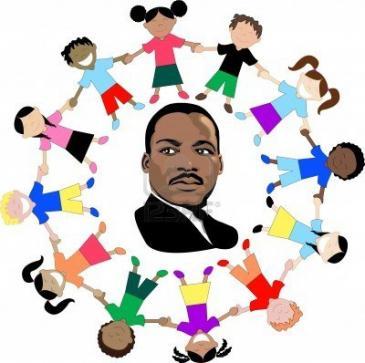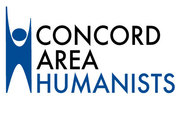Posted on January 16, 2014 by David

This week we celebrate Martin Luther King Jr Day (third Monday in January) and also his birthday (January 15, 1929). Seeing that he was a minister, and did a great deal of work within churches, it might be questioned why I might discuss him on a Humanist blog. Although MLK’s beliefs were centered around a god and religion, his actions were based on his values, ethics and sense of justice. And his actions were centered on the absolute morality of human rights and the absolute immorality of the Viet Nam War. So while his beliefs were theistic, his actions and behavior were humanistic.
I define Humanism in the following way: “I believe that I have the ability and the responsibility to do all that I can to develop all that it means to be human both in myself and in others”. I begin this definition with the words “I believe”. I think it is important to realize that there are several layers of beliefs that may be present when we use that term. When someone says they believe in life on other planets (or stars), there can be several layers just in this statement. One person may believe statistically that there is the possibility for life on the hundreds of thousands of other bodies in the universe where life might possibly exist. Another person may believe that this life may be nothing more than micro-organisms or even uni-cellular living forms such as plants. Another person may believe in intelligent life on other planets – but so remote and so far removed that it would never affect us in our lives. Another may believe that there is intelligent life which is observing us and so we should be looking for them. Another might believe that these living beings have already or will visit us on earth. And still others may believe so strongly in alien life that they will go to a hilltop to wait for a passing comet and then commit suicide in order to be with these aliens. Some beliefs may be just in the mind, our rational mind or our intuitive/emotional mind and not affect our behavior at all, while some beliefs may actually drive our behavior. Some people feel so strongly in their beliefs that they feel they need to not only act on their beliefs, but also to evangelize in order to force others to believe on the same level. This last group I am identifying as Fundamentalist Evangelicals.
So it is with theistic beliefs. Some people, like main street protestants, may believe in a god, but not to the point where that belief will dictate their actions and behavior. A person who believes in a god is not necessarily a Fundamentalist whose belief is more important than people and relationships. To me, a person’s behavior as an expression of their values, ethics, and sense of justice is more important than their rational or emotional beliefs. (I’m defining “ethics” as how we should treat and act towards others and “justice” as how we should react and respond to other people’s actions.) And I can feel more akin to those whose values, ethics, and sense of justice resonate strongly within me than I can with those whose rationalizations resonate me but not their behaviors. (Of course I would prefer to identify with both their reasonings and their actions.)
In my blog “I Don’t Want to be Labelled a Humanist”, I end it by saying “No issue is based on how we are labelled, or even by what we “are”, but rather by what we “use”. What definitions do we use? What values do we use? What rationales do we use? What motivations do we use? What we use are the parts that make us human and those are what we should develop – both in ourselves and in others.” In other words, What motivates and drives our actions and behaviors. Our beliefs are generally an identification of our values and motivations and not the cause of them.
I have been quite involved with several Non Government Organizations (NGOs) and their work with the United Nations and its agencies of UNICEF, UNESCO, WHO, etc. I would attend the Department of Information/Non Government Organizations (DPI/NGO) conferences the first week of each September. Where there would be an assembly of representatives from over 3,000 NGOs – a small fraction of the over 25,000 NGOs worldwide. These were the organizations in the world performing so much good for society. NGOs have a mission of making society better so are different than non-profit organizations. Here in the US, we tend to think of non-profits which may include organizations like orchestras rather than international NGOs like the Red Cross, Doctors Without Borders, Rotary International, Boy Scouts, etc.
I realized that I had an internal conflict which needed addressing when I realized that one of the most active NGOs was the Carmelites – a Catholic ministry “at the service of the people they serve”. Their objective wasn’t to convert but to serve. Although I found their rational (or non-rational) belief distasteful, I had to respect them for the good they were doing in different societies throughout the world. Just like YMCA is not really to convert people to Christianity, and Jewish community centers are not to convert people to Judaism, and the Muslim community center in downtown Manhattan near the former World Trade Center wasn’t to convert people to the Muslim faith. Their mission is to improve society – all of society – and not just their ilk.
We, as Humanists, are “poor in spirit” if we label all these humanitarian deeds as if they were the actions of Fundamentalist Evangelicalism. I have come to realize that I can feel closer to some of the social causes of these religions than I can to some of the dogmatic atheists who are more concerned with the purity of their thoughts than they are with their behavior in society. Just like when we talk of “Being good without a god” we may appreciate a chance to influence another person’s thoughts through our actions, yet these changes in thoughts are not our primary motivations. So it is with some of these religious do-gooders.
And so it is with MLK. His values, ethics, and sense of justice, as evidenced by his tireless work in helping the vulnerables and decrying the immorality of the Viet Nam War, were as humanitarian as I would hope that mine are. And I have no problem with identifying with his humanitarian efforts. As a Humanist with a capital “H”, I celebrate his humanitarian ideals and actions.
David Kimball


Add your comment